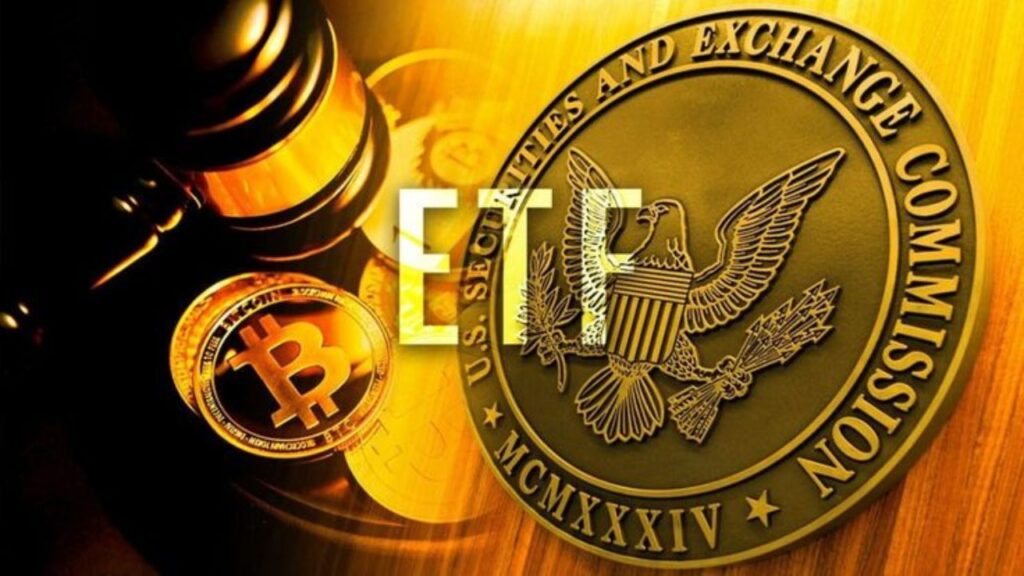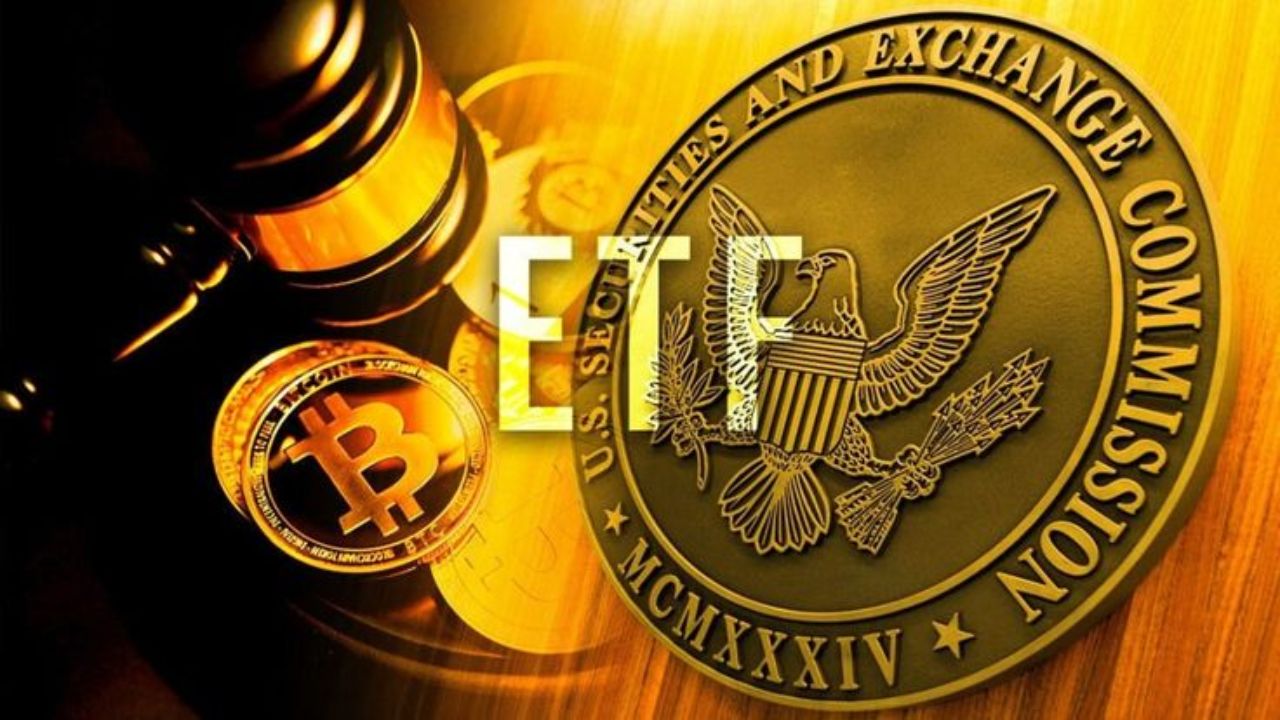Bitcoin is a new addition to exchange-traded funds. In 2021, funds related to Bitcoin’s future were introduced. However, it was only in January 2024 that U.S. regulators permitted funds directly linked to the everyday changes in Bitcoin prices, also called spot prices
To make it easier to grasp this new part of the ETF world, Forbes Advisor has looked into bitcoin ETFs that you can currently trade in the United States. Hi, my name is Gaurav Kudekar, and I’m the founder of Taazafacts.com. Some of these ETFs are directly linked to the current bitcoin market, while others provide a way to invest in the popular digital asset through bitcoin futures.
What is a Bitcoin ETF?
A bitcoin ETF is like a basket of investments mainly involving the digital currency. It sells shares to investors on the stock market, and the money collected creates a mix of assets. ETFs work kind of like mutual funds, but the key difference is that ETFs are bought and sold on a stock exchange, just like shares of a publicly traded company.
Until January 11, because of SEC rules, bitcoin ETFs couldn’t trade bitcoin at its current price. Instead, fund managers had to own companies or other ETFs related to bitcoin or cryptocurrency, or they owned bitcoin futures contracts. Futures are complicated investments meant for experienced investors.
While “spot” bitcoin ETFs offer a direct way to invest in bitcoin, investors have various preferences. Some may be interested in strategies like futures or other methods to enter Bitcoin markets. Before purchasing a Bitcoin ETF, it’s essential to research and comprehend its structure.
- Online School College: Shaping the Future of Education
- Miller makes trio of hires for Solicitors PI team
- Polkadot (DOT) Staking Punishment: Offenses And Slashes
- From Coders To Critical Thinking Developers: How To Evolve?
- WTW reveals enhanced investment management insurance solution, IMI Plus
What Are Spot Bitcoin ETFs?
In January, the SEC officially allowed investment funds tied directly to Bitcoin, known as “spot” Bitcoin ETFs. These ETFs can hold bitcoin without any uncertainty or complexity. Unlike previous funds that offered indirect exposure, these new funds enable investors to closely track the daily changes in bitcoin prices on the “spot” markets.
Not all the new funds will attract enough money from shareholders, which can be really bad for a fund. For example, if a fund charges 0.30% in yearly expenses and has only $50 million in total assets, it would only make $150,000 a year in management fees. This isn’t much for covering things like marketing, following regulations, or other important expenses.

Grayscale Bitcoin Trust
How come Grayscale Bitcoin Trust has been running since 2013, even though the SEC only recently approved funds to work as regular bitcoin ETFs? Back in the beginning, GBTC wasn’t considered an ETF.
GBTC used to trade like a closed-end fund, which means it didn’t have a smooth way for investors to sell their shares easily. This caused the price of GBTC shares to sometimes be higher or lower than the actual value of the bitcoin it represents. Now, with SEC approval to become an ETF, GBTC is on an equal footing with other ETFs, providing a fair environment for investors.
Alternative Bitcoin ETFs
Recently, there’s been a lot of talk about spot bitcoin ETFs. However, ETFs that don’t directly invest in bitcoin, like those holding bitcoin futures, aren’t worse. They’re just different ways to get exposure to bitcoin.
Keep an eye on the trend where investors are shifting money from older funds to newer ones because of the new spot offerings. Funds that can’t keep enough money may struggle to stay in business.
Bitcoin ETF Fees
Buying a bitcoin ETF might cost more than getting Bitcoin directly on a crypto exchange. Here’s why: Crypto exchanges usually charge fees for buying and selling bitcoin once, while having a bitcoin ETF involves an annual expense fee. However, some ETFs currently don’t have these fees.
Also, think about whether you’ll ever move your bitcoin from the exchange to another hot or cold crypto wallet. If you do, there might be small withdrawal fees.
Lastly, think about how you’ll sell your bitcoin, which involves paying a trading fee.
Why Should I Buy in Bitcoin ETF Instead of Bitcoin?
Some investors might prefer to add bitcoin to their investment mix using a professionally managed ETF rather than owning actual bitcoins. This is because the widespread use of bitcoin as an investment is relatively new, and some people worry about the risk of hacking or losing access to their investment due to forgotten passwords or private keys when using a secure bitcoin wallet.
Most people can sign up for Coinbase, but not everyone feels at ease doing it. Some are limited to using their regular investment accounts for buying and selling stocks.
Many people save for retirement using an IRA or a 401(k). If someone saving for retirement wants a bit of bitcoin without making a crypto account or a bitcoin IRA, owning shares of a bitcoin ETF is a good option.
How To Invest in Bitcoin ETFs
To buy a bitcoin ETF, start by opening an online brokerage account. There are various brokers available.
Once your account is set up, you can buy bitcoin ETFs just like you would buy regular stocks or ETFs. Just find the ETF’s ticker symbol in your broker’s platform, specify the number of shares you want, and click “buy.” Keep in mind that ETFs have an annual expense ratio, which is a fee deducted from your account.
The Future of Bitcoin ETFs
No one is sure about what will happen to bitcoin ETFs in the future. These are risky investments. Bitcoin prices started high at over $60,000 per coin, but later fell below $19,000.
Deciding if cryptocurrencies, especially bitcoin, are good for long-term investments is something each person must figure out for themselves. It’s a good idea to talk to a financial advisor before making investment choices.
Frequently Asked Questions (FAQs)
Is it a good idea to invest in bitcoin ETFs?
Investing always has risks, and cryptocurrencies like bitcoin can be very unpredictable. It’s important not to invest more money than you can afford to lose.
Which bitcoin ETF is the best?
We have a list of ETFs for both actual bitcoin and bitcoin futures. Each investor has different goals and needs, so you’ll need to do research based on your own situation to find the best bitcoin ETF for you.
What should you check when considering a bitcoin ETF?
Like any ETF, investors should examine the investment strategies, holdings, expense ratio, total assets, and past performance. Remember that how well it did in the past doesn’t guarantee future success.
Are bitcoin ETFs safe?
All investments have risks, and cryptocurrencies like bitcoin can be very unpredictable. Don’t invest more than you can afford to lose. It’s smart to consult with a financial advisor before making any investment choices.

